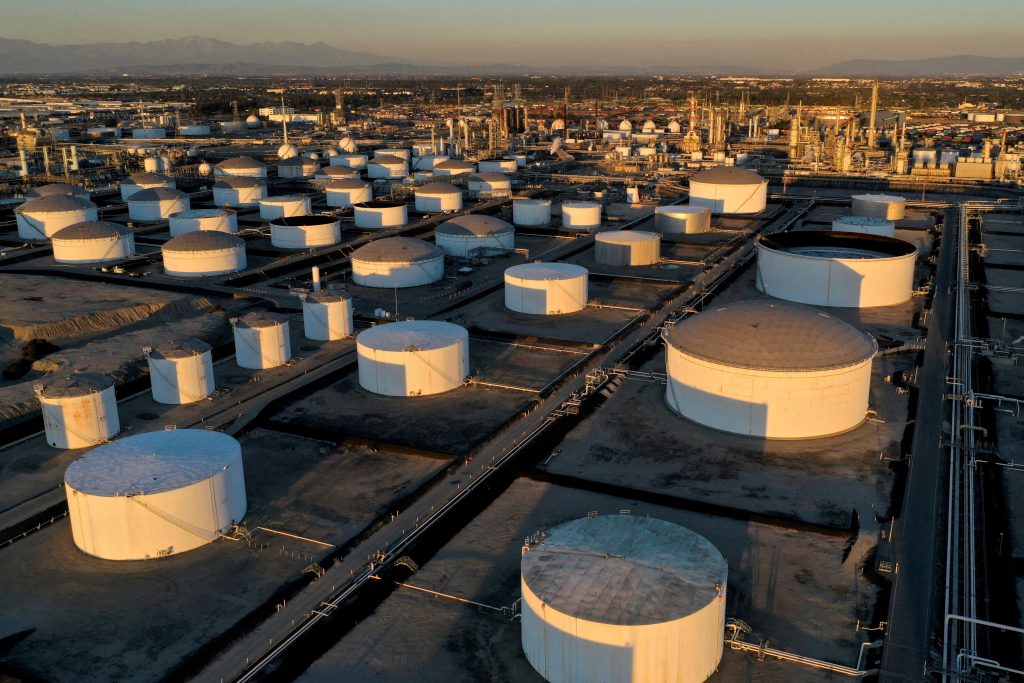Oil prices continued to fall on Tuesday following reports that Israeli Prime Minister Benjamin Netanyahu assured US President Joe Biden that any retaliation against Iran would avoid targeting its crude or nuclear facilities. The pledge followed a missile attack earlier this month.
The drop in oil prices also reflects concerns about China’s economic outlook, as Beijing did not announce any new stimulus measures at a weekend briefing, nor provide details on previously announced plans.
Despite the decline in oil, global equity markets showed positive movement, with most Asian markets rising after record closes for the Dow and S&P 500 on Wall Street. Investors are optimistic as the third-quarter earnings season is set to begin.

Early trading saw both major oil benchmarks decline by around three percent, adding to losses of at least two percent from Monday. The Washington Post reported that Netanyahu promised to target Iran’s military rather than its oil and nuclear infrastructure.
Investors have been on alert since Iran fired missiles at Israel earlier this month, raising fears of a conflict that could impact the region’s oil supply. The recent escalation follows Tel Aviv’s offensive against Hezbollah leaders in Lebanon, alongside its ongoing airstrikes in Gaza that has resulted in deaths of over 40,000 Palestinians, many of whom are women and children, according to reports from the Palestine health ministry.
Netanyahu on Monday vowed to retaliate against Hezbollah, a day after the group’s deadliest attack on Israel since the conflict began in late September.
Oil prices were further pressured by concerns about China’s economic performance. Investors were disappointed when Finance Minister Lan Fo’an did not announce significant fiscal support measures during a highly anticipated news conference on Saturday, leaving them wanting further details.
The lack of clarity followed a similar briefing last week, which also fell short of expectations, stalling a rally in Chinese markets. This led to declines in Hong Kong and Shanghai, which had previously surged following the announcement of initial stimulus measures.
Weaker-than-expected trade and inflation data for September highlighted China’s economic struggles, with analysts suggesting more concrete fiscal plans may not be unveiled until the upcoming Communist Party meeting, for which no date has been set.
Investors are now looking ahead to key economic indicators later in the week, including reports on retail sales, trade, and GDP growth, for further insights into China’s economic situation.
In Tuesday’s trading, Shanghai and Hong Kong saw losses, while Tokyo’s Nikkei 225 index rose above 40,000 points for the first time since July as traders returned from a three-day holiday. Other Asian markets, including Sydney, Seoul, Singapore, Taipei, Manila, and Jakarta, also posted gains.

